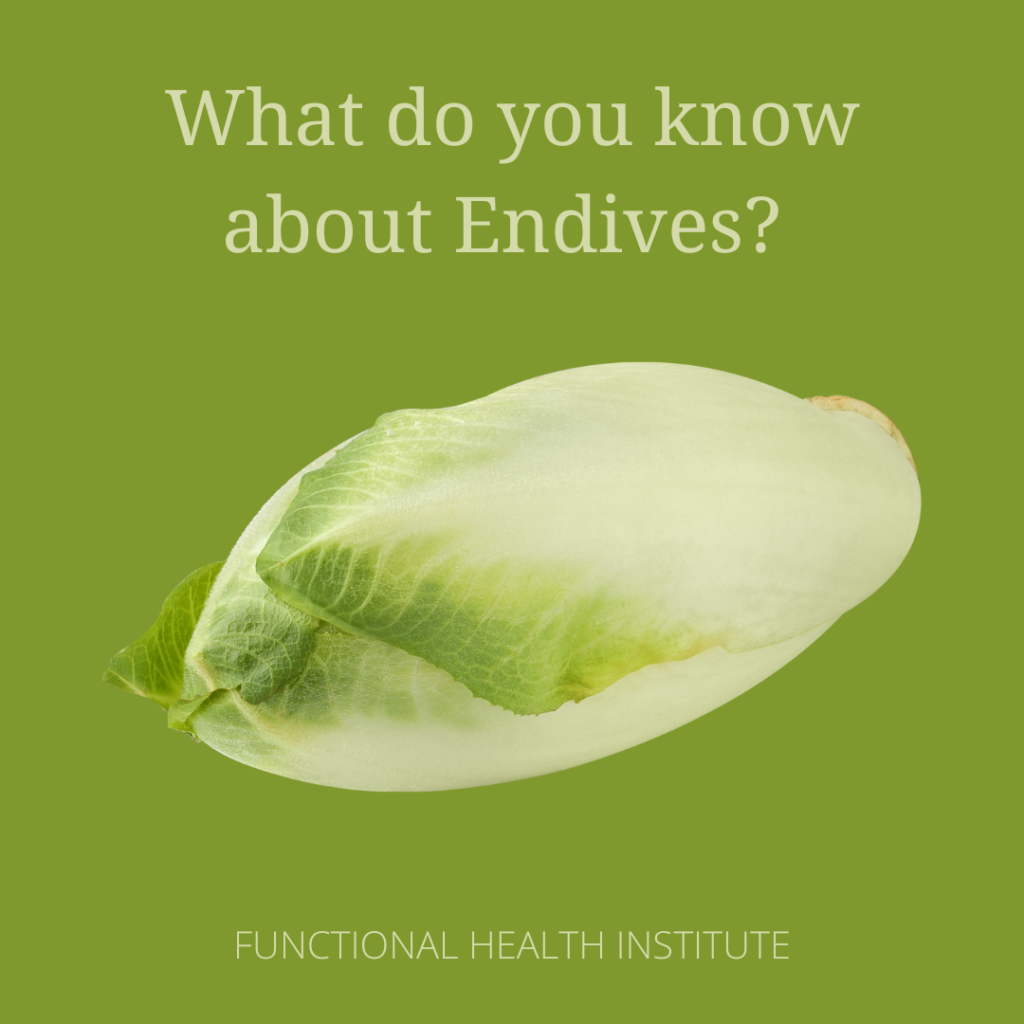Endives: What can they do for you?

Endive is a green vegetable with delicate, curly leaves and a crisp texture. They grow in cool weather and are often eaten in salads, stir-fries, and mixed into juice or smoothies. They grow in conditions like green lettuce, so it is relatively easy to grow endives in most temperate climates. The vegetable has a high-water content and contains a variety of vitamins, minerals, and antioxidants. It’s easy to obtain the benefits of endive by adding this vegetable to meals or beverages on a regular basis. ( Check out the benefits below)
So, where can you find these in your local store? If you’re going to the grocery store you can find the endive located next to other specialty greens in the produce department. Look for heads with tightly packed leaves and a smooth, elongated shape. If you are unsure whether you have endive available near you, we suggest you simply contact the produce department of your local grocery store.
Depending on where you live, the endive may or may not be available at your local farmers market – but you can always ask if there is a specialty section for greens.
Enjoy endive raw or cooked. To prepare raw endive, pull the leaf near the root until the leaf separates from the vegetable. Because of their sturdy texture and bitter flavor, endive leaves make up the base of salads. It’s also great in soups, sautéed in butter and balsamic – the options go on and on.
Here are few of the benefits:
Eyes and Vision: Endive contains high concentrations of beta-carotene. The body can convert beta-carotene to vitamin A to prevent dry, itchy eyes or eye ulcers.
Neurological Health: Endive is a good source of folate, potassium, and numerous antioxidants. These nutrients encourage neurological health, and folate may lower the risk of developing Alzheimer’s disease and other types of dementia.
Reproductive Benefits: Endives are a good source of B-complex vitamins including folic acid, pantothenic acid, pyridoxine, thiamin, and niacin. These vitamins, especially folic acid, are important during pregnancy for prenatal neural tube formation and overall development of the nervous system. Folic acid deficiencies can cause or exacerbate congenital disabilities of the spine and spinal cord. B-complex vitamins are also essential to the process of forming red blood cells, which takes place at an accelerated rate for the mother and baby during pregnancy.
Hair, Skin, and Nails: Endives contain an abundance of vitamin E, vitamin A, vitamin C, and many antioxidants. These vitamins are all necessary for healthy skin, hair, and nails. Vitamin E deficiencies leave skin dry and more susceptible to breakdown and result in brittle hair and nails that are more prone to breaking. Antioxidants protect cells throughout the body from the effects of aging.
Digestion: Endive, like most leafy green vegetables, is high in fiber. Fiber enhances absorption of nutrients and prevents constipation by adding bulk to stool. Two carbohydrates known as inulin and intibina are unique to endives and similar vegetables. Intibina has a bitter taste and stimulates liver function by causing the gall bladder to release bile. The increased bile production also improves digestion of fats. Inulin stimulates appetite and slightly increases the speed of digestion.
Urinary tract: Endives contain various substances that act as diuretics, stimulating the kidneys to produce more urine. Diuretic medications are useful for treating many conditions but require caution because they can damage the kidneys. The diuretic properties in endives are mild, and the high-water content in this vegetable is also beneficial because it balances the diuretic effects to prevent dehydration.
Vitamin K: Endive contains a lot of vitamin K, which the body needs to produce blood clotting factors in a normal, healthy manner without forming dangerous blood clots where they should not exist. Vitamin K, in combination with other substances in endives such as trace minerals and potassium, regulates blood sugar and pressure to prevent diabetes and hypertension.
Bones and Teeth: Endive is rich in calcium, manganese, and potassium. Calcium is an integral part of bones and teeth and prevents osteoporosis. Doctors may recommend supplements, but the body cannot digest them very efficiently. We lose a lot of calcium, manganese, and potassium through excretion. Obtaining these substances through vegetables like endives instead results in a much higher absorption and less waste.
Immune System: The benefits to skin and nails also aid the immune system because those are the body’s first line of defense. Multiple vitamins and nutrients in endives strengthen mucous membranes, the lining in the mouth and other body cavities, and assist in creating T-cells and macrophages, cells used by the immune system to fight pathogens.
